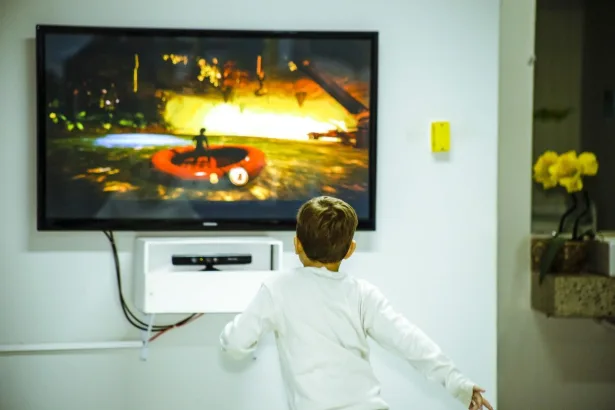Researchers found that children aged 2-5 years old who spent more time in front of screens fared worse in child development screening tests in a new study that shouldn’t surprise anyone. The reason for their poor performance is quite simple. The more time children spend in front of screens, the less time they spend talking, being active, or playing – the activities that help them develop their basic social skills.
The study, conducted by psychologists from the University of Calgary and published Monday in the journal JAMA Pediatrics, examined the effect of screen time at three specific time intervals during a child’s growth. The researchers recruited 3,388 mothers for the study and evaluated their children’s performance at 24, 36, and 60 months. Caregivers reported average screen time and also filled out standard questionnaires on motor and communication skills.
The results were pretty straightforward: “Greater screen time at 24 months was associated with poorer performance on developmental screening tests at 36 months, and similarly, greater screen time at 36 months was associated with lower scores on developmental screening tests at 60 months.”
The results were unidirectional, as kids with more screen time usually had lower scores, but kids with lower scores didn’t necessarily have more screen time.
Researchers explained that kids who spend more time in front of screens miss out on practicing vital interpersonal, communication, and motor skills. For example, when kids are watching TV, they sit down, so their motor skills aren’t being properly put to the test. Kids who are sedentary often have delays in motor skill development.
Kids can also develop antisocial tendencies when they spend less time interacting with their caregivers, both verbally and nonverbally. The communication that the children miss out on is extremely crucial for optimal growth and development.
Some researchers argue that it’s important to judge the quality of screen time and not the quantity, but this research doesn’t go into that discussion. But other researchers have noted that screen time doesn’t have to be detrimental to development, especially when used to interact with other people (such as through video chats).
Young children should spend their time interacting with the environment and being mobile, and luckily, screen time can be controlled. The American Academy of Pediatrics recommends that a child’s earlier years be spent on activities to help them develop their basic physical, social, and emotional skills.
The study shows that some children were spending an average of two to three hours a day staring at a screen time, but it doesn’t specify whether this number is excessive or normal. The researchers believed that it was just one of their study’s limiting factors and something they will analyze in future research.





Share Your Thoughts